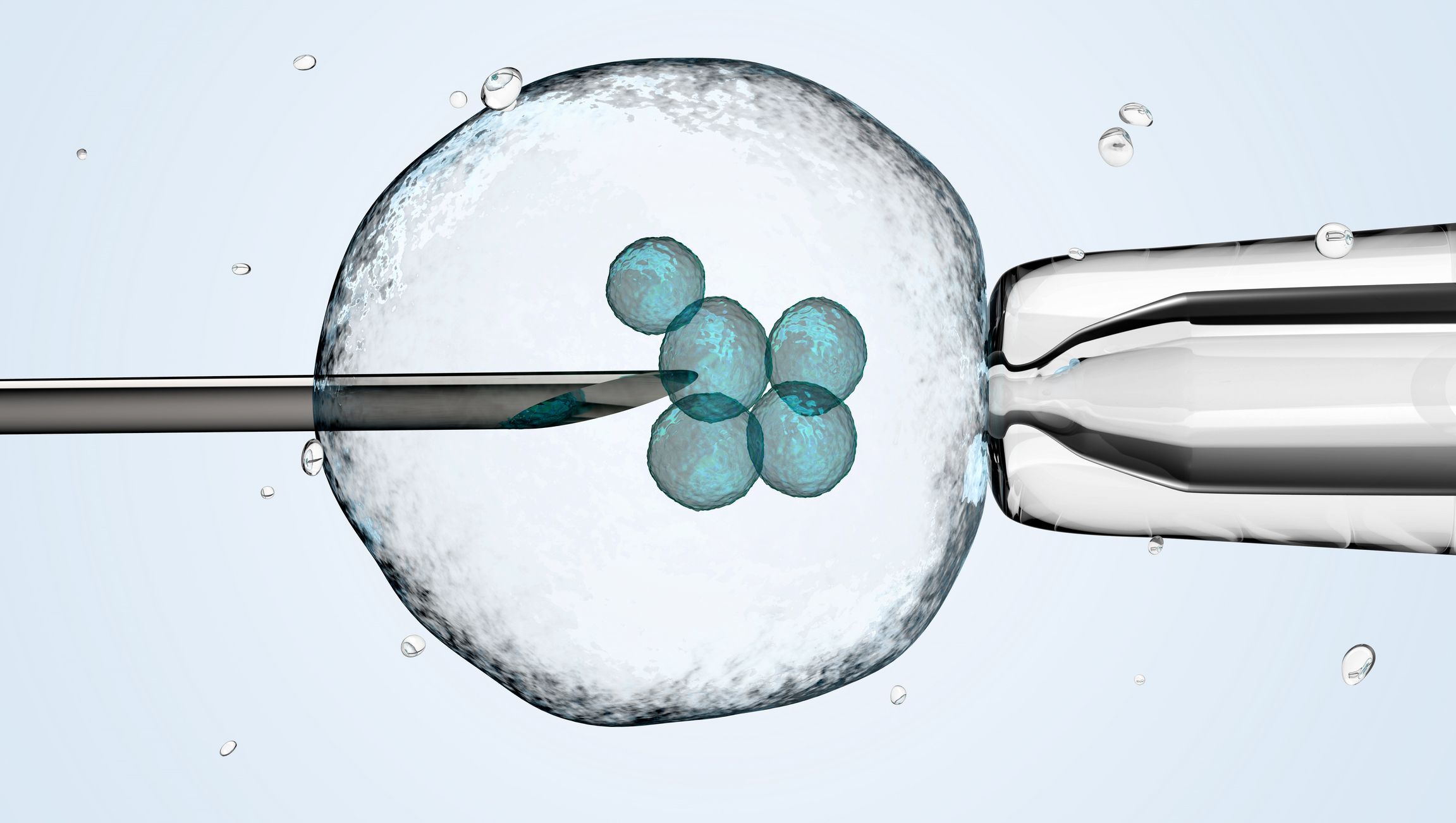
An infertile woman participating in a pilot clinical trial is now 27 weeks pregnant after undergoing an advanced assisted reproduction technique, researchers say.
The IVF procedure—known as maternal spindle transfer (MST)—essentially involves combining material from the egg of the patient with that of a donor.
Read more: Experts have condemned a Chinese scientist who claims to have created gene-edited babies
Specifically, researchers remove the nucleus of an egg that contains mutated or unhealthy mitochondria—the power generators of cells. This is then transplanted into another egg with healthy mitochondria which has also had its nucleus removed. The resulting egg is then fertilized with the sperm of a male partner.
Scientists from Spanish research company Embryotools, who are conducting the pilot trial, say the technique has a number of significant benefits over conventional assisted reproduction techniques, such as egg donation.
Perhaps most importantly, more than 99 percent of the DNA in the baby will come from the biological parents, even though a third person donates their egg.
"Even though gametes [reproductive sex cells] are required from a man and two different women (the patient and the donor), the nuclear or genomic DNA responsible for the vast majority of phenotypical characteristics of the future baby will come from the biological mother and father, just like in a normal fertilization process," Nuno Costa-Borges, scientific co-founder of Embryotools, said in a statement.
"The donor will only provide mitochondrial DNA, which only codes 37 genes and represents less than 1 percent of human DNA," he added.
MST itself is not entirely new: It has previously been used to prevent children being born with genetic mitochondrial diseases. But the latest news is the first time the technique—which was developed in the U.S.—has been used to treat infertility (although it should be noted that the results of the pilot trial are yet to be published in a peer-reviewed scientific journal).
The pregnant patient in question is a 32-year-old Greek woman who had already been given four cycles of IVF, and two operations in order to conceive, without success. The trial took place in Greece and not Spain where the researchers are based as MST is not a legal assisted reproduction technique in the latter.
The latest use of MST could potentially be groundbreaking; however, it has proven controversial due to the ethical questions it raises and the fact that the safety of procedures such as this are relatively unknown.
"If true this is really big news in terms of reproductive medicine and biotechnology," César Palacios-González, an ethics professor at the University of Oxford, wrote on his department blog. "If successful, this would be just the third birth following a reproductive technique that mixes the DNA of three people."
"Now, the main ethical issue (or one of the main issues) that will arise from this Spanish/Greek enterprise is whether using MSTs for treating infertility that is not related to mitochondrial disease is morally permissible," he said.
Uncommon Knowledge
Newsweek is committed to challenging conventional wisdom and finding connections in the search for common ground.
Newsweek is committed to challenging conventional wisdom and finding connections in the search for common ground.
About the writer
Aristos is a Newsweek science reporter with the London, U.K., bureau. He reports on science and health topics, including; animal, ... Read more
To read how Newsweek uses AI as a newsroom tool, Click here.








